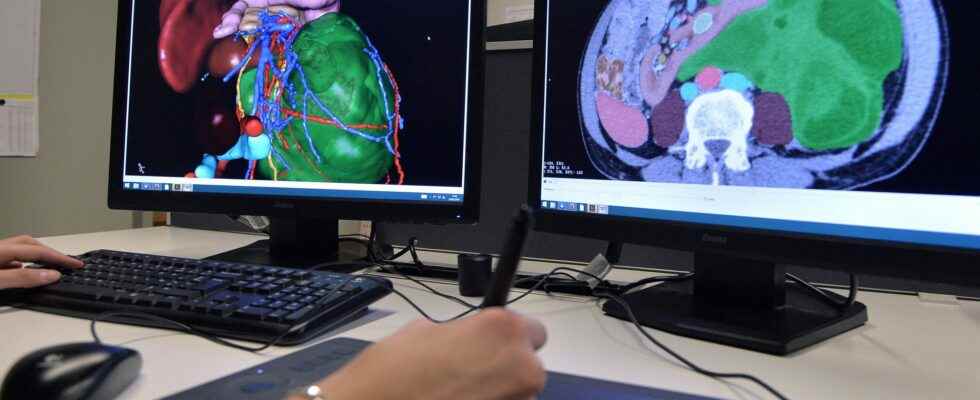After twenty years of pedagogy and world days against cancer, we could have hoped for better. But it is a fact: the population, as a whole, identifies rather badly the real causes of this disease. And this lack of discernment particularly affects followers of conspiracy theories, as a study, published last December, suggests. in the British Medical Journal by Spanish researchers.
“Originally, this was just a quirky scientific article, as you traditionally see in the Christmas issue of the British journal. But ultimately, this work puts the finger on a very serious problem”, comments Sebastian Dieguez, neuroscientist, conspiracy specialist and author of the essay Believe, why belief is not what we believe.
Between January and March 2022, the Spanish researchers conducted a series of polls on several online discussion platforms. They thus collected numerous data on the behavior and health of the participants (preference for conventional or alternative medicine, attitude towards vaccination against Covid-19, consumption of tobacco or alcohol, weight, etc.) but also on their beliefs. vis-à-vis the causes of cancer or certain hypotheses defended by conspirators such as the flat Earth or the existence of reptilians.
Cross-analysis of this information yields some reassuring results. For example, the real explanations for the appearance of cancers (smoking, consumption of alcohol or red meat, sunburn, advanced age, overweight, family history, etc.) are on the whole better identified than unproven factors, such as drinking from plastic bottles, using a microwave oven, living near high voltage lines or being exposed to 5G waves.
“The study confirms that smoking is particularly well accepted as a cause of cancer in society as a whole. It is very rare to find people who deny it”, notes Sebastian Dieguez. But on closer inspection, our general knowledge of the reasons for the appearance of this scourge appears to be incomplete or even false, to say the least. Some causes, such as insufficient consumption of fruits and vegetables, are only identified by a small fraction of the population.
More disturbingly, a majority of individuals questioned believe that GMOs or 5G waves may be responsible for cancer. While a smaller number of citizens point to alcohol as a possible cause. And among those who set aside this hypothesis, however correct, we find in particular… lovers of alcoholic beverages.
The authors of the article summarize this paradox: “The people concerned do not really feel in danger. For example, we observed an inverse relationship between age and the belief that being over 70 was a risk factor cancer. We observed a similar phenomenon for obesity, passive smoking and alcohol consumption”.
No, not everything causes cancer
Finally, scientists observe significant differences in knowledge depending on the beliefs of individuals. Overall, people who say they are not vaccinated, are conspiratorial and prefer alternative medicine are less likely to identify the recognized causes of cancer. They also believe that certain mythical causes are real.
“It’s not really a surprise, believes Sebastian Dieguez. From the moment a person claims to adhere to certain hypotheses such as that of a flat Earth, we already know that statistically, he will adhere to a whole bunch of “other conspiracy theories. She’s not just going to question astronomy or geology. She’s also going to tend to dismiss biology, medicine and a whole bunch of other disciplines.”
This behavior may be linked to a particular psychological profile which seeks to systematically challenge the word of the “elites who hide things from us” whether they are politicians, scientists or journalists, recalls the specialist. This means that the followers of the flat Earth or other wacky theories… do not necessarily believe in them and that their posture sometimes counts more than the idea they defend.
“However, in this context, it is not surprising that people immersed in alternative medicine or the antivax movement are relatively uninformed about the real causes of cancer”, believes Sebastian Dieguez.
What influence do these groups have on the rest of society? The question needs to be asked. Because according to the study, almost half of the participants, conspiratorial or not, agree with the statement that “It seems that everything causes cancer”. According to the Spanish researchers, “this highlights the difficulty that society has in differentiating the real causes of cancer from the mythical ones, due to a massive dissemination of information, whether true or not. It also suggests a direct link between the digital misinformation and potentially erroneous healthcare decisions”. As a consequence, a number of cancers could, without doubt, have been avoided.
